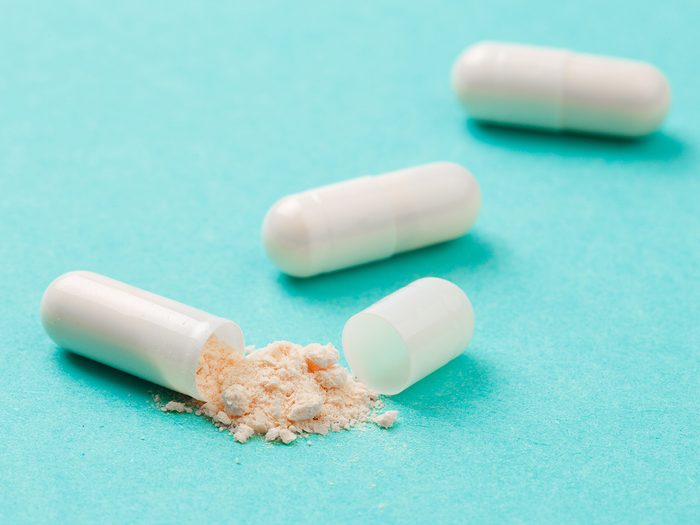Should You Take a Probiotic Supplement?

You know, you know—probiotics are “good for your gut.” But how good?
“There are loads of reasons to take a probiotic supplement,” says microbiology expert and probiotic educator Dr. Jessica ter Haar. Probiotics can regulate the bacteria in your gut, helping to treat and prevent certain conditions like constipation, irritable bowel syndrome and diarrhea, to name a few.
“Every healthy person should be taking some source of beneficial bacteria,” says ter Haar. If you’re not consuming a probiotic-rich food every day—and even if you are—ter Haar says a supplement is a good way to maintain microbe diversity. “We’re supposed to be surrounded by microbes,” she says, “but with the pandemic, we’re inside a lot more than before, so our microbial exposure is limited.” Isolating from other people, animals and nature means we aren’t encountering the usual array. Good microbes support our digestive system, immune system, hormone production and even mental health, says ter Haar, and probiotics can supply the bacteria we’re used to getting (and need) from the outside world.
Here, ter Haar shares five things to know about probiotic supplements.
(Related: What Experts Think of 6 Buzzy Gut Health Trends)
They can help you eat the foods you want
Probiotics can help treat an array of digestive health issues, relieving pain and discomfort. Ter Haar gives the example of how probiotics work for people with lactose intolerance: taking a supplement when consuming a dairy product can help the body digest lactose, warding off cramps, bloating and other pain that can occur with dairy consumption.
They can help reduce the side effects of antibiotics
“An antibiotic is like an atomic bomb—it just wipes out everything in the gut,” says ter Haar. This can result in bad microbes growing and taking over, leading to what we know as antibiotic side effects, like diarrhea. Ter Haar says this can be prevented by taking probiotics before, during and after antibiotic use, as they can help the body recognize and stimulate good bacteria and encourage it to grow.
A prebiotic may better address your concerns
A probiotic is a live microbe, and a prebiotic is a physical compound that’s not alive. According to ter Haar, they “both have their place.” She says prebiotics, like inulin from garlic, beta-glucans from oats or a supplement, can help with specific conditions such as digestive discomfort by, for example, bulking up stool.
They’re safe
There are no safety issues with probiotics unless you are immunocompromised or allergic to an ingredient that may be in a supplement, says ter Haar. In Canada, probiotics are regulated under the Natural and Non-Prescription Health Product Directorate, so they have to meet specific regulations even to get on store shelves. You can ask your doctor to recommend the best strain for you.
They work—as long as you get the right one
Different probiotic strains treat different concerns, so it’s imperative to take a probiotic supplement that addresses your specific issue, says ter Haar. For example, only some probiotics are naturally resistant to antibiotics. She also recommends selecting a high-quality probiotic, and one that includes its full name (such as “lactobacillus acidophilus 123”), shares how many live microbes it contains and has an expiration date.
Next: Digestive Disorders Affect More Women Than Men. So Why Is It So Hard To Get a Diagnosis?




